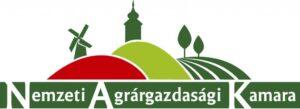Preventing toxin contamination of wheat and corn is an important task
Although the harvest of cereals is already upon us, it is not too late to protect against toxin contamination. The publication “In the shadow of mycotoxins: how to prevent toxin contamination of cereals” prepared by the National Chamber of Agriculture provides assistance to arable crop growers. In the volume, farmers can read about a number of useful cultivation and storage technologies and methods.

Toxin contamination of wheat and corn is a recurring problem in arable crop production, for which several plant pathogenic fungi may be responsible. According to observations, more severe infections can be expected in drought years, so it is particularly important for farmers to take steps to prevent the infection of their crops.
Protection is not easy
Experience shows that plant protection treatment alone or the correct application of a production technology element is not enough to reduce the toxin content, and the combined use of these can prevent infection by pathogens. Mycotoxins can significantly damage both animal and human health, so infected grains cannot be used for food or feed purposes. After harvest, the toxin content of grains can no longer be reduced, and even improper storage conditions can further increase the toxin content of the crop. That is why it is important for as many people as possible to learn about the technologies and good practices related to the prevention of toxin infection, which they can then incorporate into their own farming practices.
The publication of the National Chamber of Agriculture is intended to facilitate this process
The “In the Shadow of Mycotoxins: How to Prevent Toxin Contamination of Cereals?” In the publication titled “Reducing toxin contamination”, NAK experts summarized the cultivation and storage technologies and methods that play a role in reducing toxin contamination.
NAK
Related news
János Lázár: rural development is needed, not agricultural policy
🎧 Hallgasd a cikket: Lejátszás Szünet Folytatás Leállítás Nyelv: Auto…
Read more >Related news
Tourism Business Index: improving sentiment, but the sector remains in the red
🎧 Hallgasd a cikket: Lejátszás Szünet Folytatás Leállítás Nyelv: Auto…
Read more >Levente Balogh announces a revolution in the quality dairy products market
🎧 Hallgasd a cikket: Lejátszás Szünet Folytatás Leállítás Nyelv: Auto…
Read more >Lamb Days – Gastronomic Adventure is coming again on March 28–29!
🎧 Hallgasd a cikket: Lejátszás Szünet Folytatás Leállítás Nyelv: Auto…
Read more >









